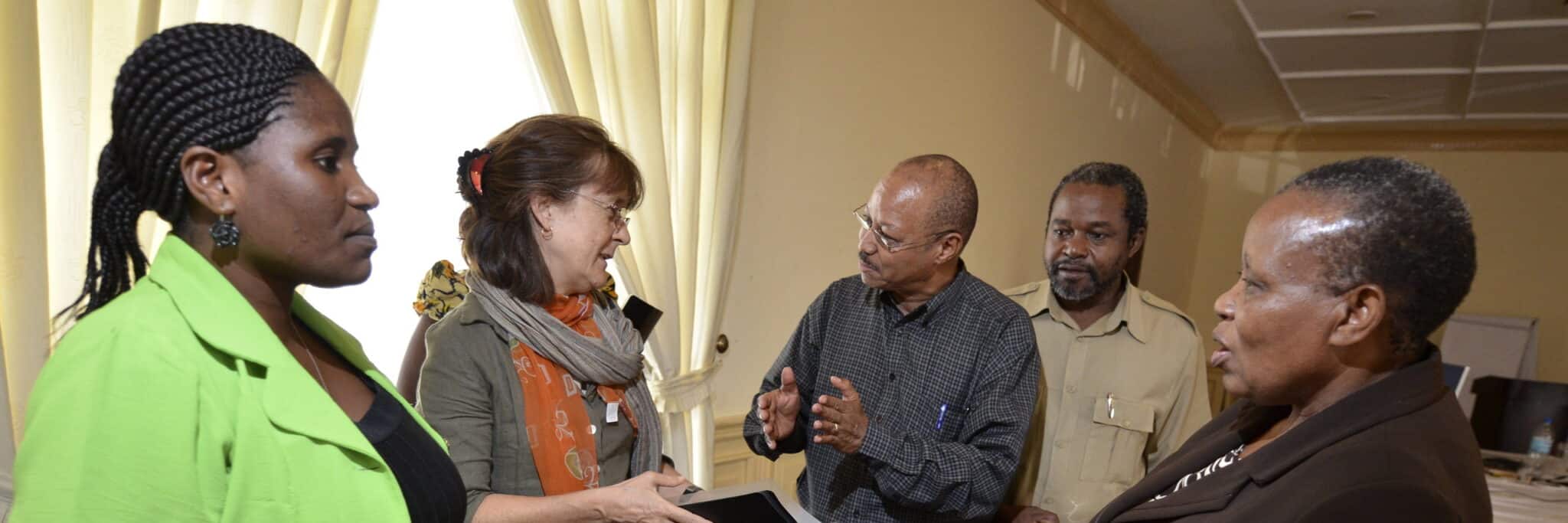The Covid-19 pandemic has had a major impact on people’s life as well as the public and private sectors and continues to pose huge risks from a social and economic perspective as well as on financial systems and economic stability.
Across the world, planning for economic recovery is essential in building towards sustainable development. In Botswana, the public and private sectors are now working hand in hand to leverage knowledge and capital for economic development and mitigate challenges brought about by the pandemic. Such collaboration is vital to foster economic recovery towards a sustainable future.
In this vein, Business Botswana (BB), a private sector organization which functions as a business representative body seeking sustainable and inclusive economic development, has developed a Covid-19 Private Sector Recovery Plan1 that has been discuss with public actors through a Public Private Dialogue (PPDs) process.
In November 2021, BB with support from the Investment Climate Reform (ICR) Facility conducted eleven PPD sessions across major towns and villages in Botswana including Gaborone (capital city), Molepolole, Tsabong, Kanye, Hukuntsi, Phikwe, Mahalpye, Kasane, Francistown and Mochudi. The aim of the PPDs was to convene business councils and local authorities to access, discuss and translate into actionable tasks the Private Sector Recovery Plan. Delivered effectively, the PPD sessions helped to identify economic activities that are implementable for the benefit of the business councils’ constituents and to strengthen engagement between local authorities and businesses.
Supported through technical assistance from the ICR Facility, the PPD sessions enabled BB to engage the government on matters that promote growth of the private sector and development. They have helped BB to be at the forefront of discussions regarding policy development to support economic recovery, cushion the private sector against future shocks in the post-Covid era and build economic resilience.
In a town like Selebi-Phikwe for instance, which is a mining town, the PPD session was able to identify and push for diversification through creating multiple opportunities for value addition. The town is well-placed to not only focus on mining but also move to production, processing and packaging, as well as focus on recycling of the dumps, iron smelting, forestry, juice production, among other activities.
There is optimism for an economic recovery and the dialogue sessions were able to help align local economic development strategies with opportunities for private sector participation. This was evident in the towns where the sessions were held. For instance, in Mahalapye town the private sector representatives indicated how readily available they are to be part of the various committees in order to play a bigger part in decision-making.
The ICR Facility intervention did not only provide technical assistance to BB to facilitate 11 PPD sessions across Botswana on the Private Sector Recovery Plan but also developed a tailored PPD methodology that can be used by BB for future PPDs in Botswana. The results of the PPDs have also been used to develop a roadmap for the implementation of the Covid-19 Private Sector Recovery Plan for the benefit of Botswana.
Public-private sector collaboration remains a vital part of the solution to boosting economic recovery. It is time to focus on how the public and private sectors can come together to rebuild economies and create a more sustainable and inclusive business environment.
Endnote: This publication is part of an intervention supported by the Investment Climate Reform (ICR) Facility. The ICR Facility is co-funded by the European Union (EU), the Organisation of African, Caribbean and Pacific States (OACPS) under the 11th European Development Fund (EDF), the German Federal Ministry for Economic Cooperation and Development (BMZ) and the British Council. The ICR Facility is implemented by GIZ, the British Council, Expertise France, and SNV. This specific intervention activity was led by KCIC Consulting Limited (KCL) on behalf of the British Council.
The contents of this publication are the sole responsibility of the authors and do not necessarily reflect the views of the donors or the implementing partners.
The ICR Facility supports public and private stakeholders in African, Caribbean and Pacific (ACP) countries in creating a more conducive, sustainable and inclusive business environment and investment climate.
More information: WWW.ICR-FACILITY.EU
